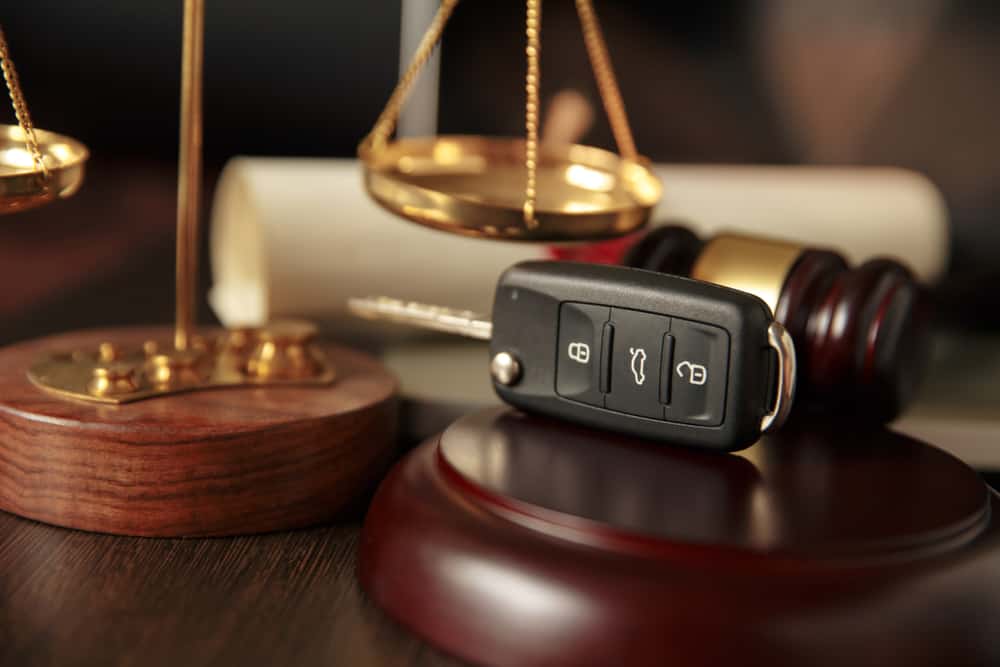
Under Texas Penal Code Section 49.08, a person commits intoxication manslaughter if he or she operates a motor vehicle, watercraft, aircraft, or amusement park ride in a public place while intoxicated and, by so doing, causes the death of a person by accident or mistake. The fatality may be the death of a passenger in the same car, another car, a pedestrian, or anyone affected by the actions of the car operator. This also applies to a death that occurs after the accident as a result of severe injuries.
The state of Texas takes driving while intoxicated seriously. Sec. 49.01 of the Texas Penal Code defines intoxication as having a blood alcohol concentration (BAC) of 0.08 or higher, or at any level that causes you to lose “normal use of mental or physical faculties.” Your BAC can be measured by the number of grams of alcohol in your breath, blood, or urine.
Being intoxicated is dangerous because it negatively impacts your ability to control your movements and inhibits your cognitive function and ability to react. While most people assume intoxication equals drunkenness, it could also involve the use of controlled substances.
The Criminal Penalty for Intoxication Manslaughter
A criminal conviction can wreak havoc on your personal, professional, and social life. It can take a toll on your standing in your community and could separate you from your career and family if you are convicted and subsequently sentenced to imprisonment. Intoxication manslaughter is a second-degree felony in Texas, and according to Sec. 12.33 of the Texas Penal Code, is punishable by:
- Incarceration of 2 to 20 years
- A fine of up to $10,000
You are at risk of these criminal and financial penalties if you are arrested for and charged with intoxication manslaughter. A local lawyer may be able to help you limit the severity of the penalties you face by challenging the validity of the test used to measure your BAC or by questioning the calibration or effectiveness of testing machinery, mechanisms, and methods.
A felony conviction can permanently alter your life, alter the lives of your family, and limit your employment and career options. When you are facing these charges, and their aftermath, you may want to review the circumstance surrounding the car accident you were involved in and your subsequent arrest with a lawyer in your area who may be able to help you limit the damage of a felony conviction.
Escalating Penalties for Intoxication Manslaughter
If your intoxication manslaughter case involves the death of a firefighter, emergency medical services personnel, or a police officer while on duty, the charges can be increased to a first-degree felony. This carries a penalty of 5 to 99 years in state prison along with substantial fines.
A Criminal Conviction Can Lead to the Loss of Certain Rights
The damage of a felony conviction can leave a permanent stain on your record and result in the loss of many civil rights. According to the United States Probation Office—Western District of Texas guidelines, if you are convicted of a felony in Texas, you lose the right to:
- Vote until after you have fully served your sentence, including incarceration, parole, supervision, or probation
- Serve on a federal jury unless you receive a pardon
- Become a candidate for any public office or position unless you receive a full pardon
- Receive, transport, own, or possess a firearm or ammunition or any form of explosive
A felony conviction can also come with criminal and financial enhancements that make the penalties you pay even more severe. A one-time mistake may not have to limit your ability to enjoy life, maintain gainful employment, or spend time with your family. Contact our legal team today to find out how we may be able to help you regain control of your life after an arrest for intoxication manslaughter.
The Burden of Proof
In an intoxication manslaughter criminal case, the prosecution has the burden of proof. They must prove that you were legally intoxicated while operating the vehicle and that the intoxication caused the accident that resulted in a fatality.
The prosecution commonly uses the results of a blood alcohol concentration test or a field sobriety test to prove their assertion that you were legally intoxicated. If there were no tests, the prosecution may have to rely on witness testimony. If you were involuntarily intoxicated, or drugged without knowing it, you cannot be held responsible for the fatality.
Blood Alcohol Concentration Tests and Intoxication Manslaughter
If you have been charged with intoxication manslaughter, you may or may not have agreed to take a blood alcohol concentration (BAC) test. A person is considered legally intoxicated if he or she has a blood alcohol concentration (BAC) of 0.08 percent or more. An individual may also be considered intoxicated when the BAC is lower than the legal limit of 0.08 percent if the individual has alcohol, a controlled substance, or drugs in their system that result in the loss of normal use of their mental or physical faculties.
Blood tests measure BAC directly and are the most accurate form of chemical testing. Urine and breath tests provide indirect measurements, with urine tests being the least accurate detectors of alcohol intoxication.
If your intoxication manslaughter charge relies on the results of a BAC test, your Dallas DWI attorney may be able to discredit that evidence and protect your right to a fair trial.

Potentially Limit the Damage of an Arrest With a Lawyer By Your Side
Although you can fight a felony conviction on your own, having a lawyer by your side may have certain advantages. Before, during, and after an arrest in Texas, you still have rights that must be honored and respected. Having a lawyer by your side can ensure your rights are not violated and you receive representation that may help limit the potential harm you are facing.
Our team knows and understands DWI laws, penalties, and consequences in Texas. We also know how important it is to limit the damage of a conviction on your life and career. We fight hard for our clients to ensure none of your rights were violated during the arrest process and aim to make sure your penalties are minimal and do not permanently and negatively impact your life and lifestyle.
If you were in an accident involving a DWI, you can never have your record sealed if you are convicted. A lawyer may be able to help you avoid this consequence by negotiating a plea bargain that avoids a criminal conviction.
An intoxication manslaughter lawyer in Texas can help you by forcing the state to meet the high burden of proof you are entitled to under the law. There are many strategies that can be used, depending on the nature of your case. Some tactics that have been successful in past cases include:
- Questioning the accuracy of the device used to measure your BAC
- Explaining how certain medical conditions could artificially raise your BAC reading
- Demonstrating the device used to measure your BAC was not calibrated and maintained correctly
- Showing that there may have been an error during the collection and handling of your blood test
- Proving that the arresting officer did not follow appropriate procedures when making the arrest

Call the Law Offices of Randall B. Isenberg Today
Are you facing the potential damage of a felony conviction in Texas? You are not alone. You can fight back against an intoxication manslaughter arrest with the guidance and direction of a lawyer. Get help when you need it most by contacting the criminal defense team at the Law Offices of Randall B. Isenberg by calling (214) 696-9253.










